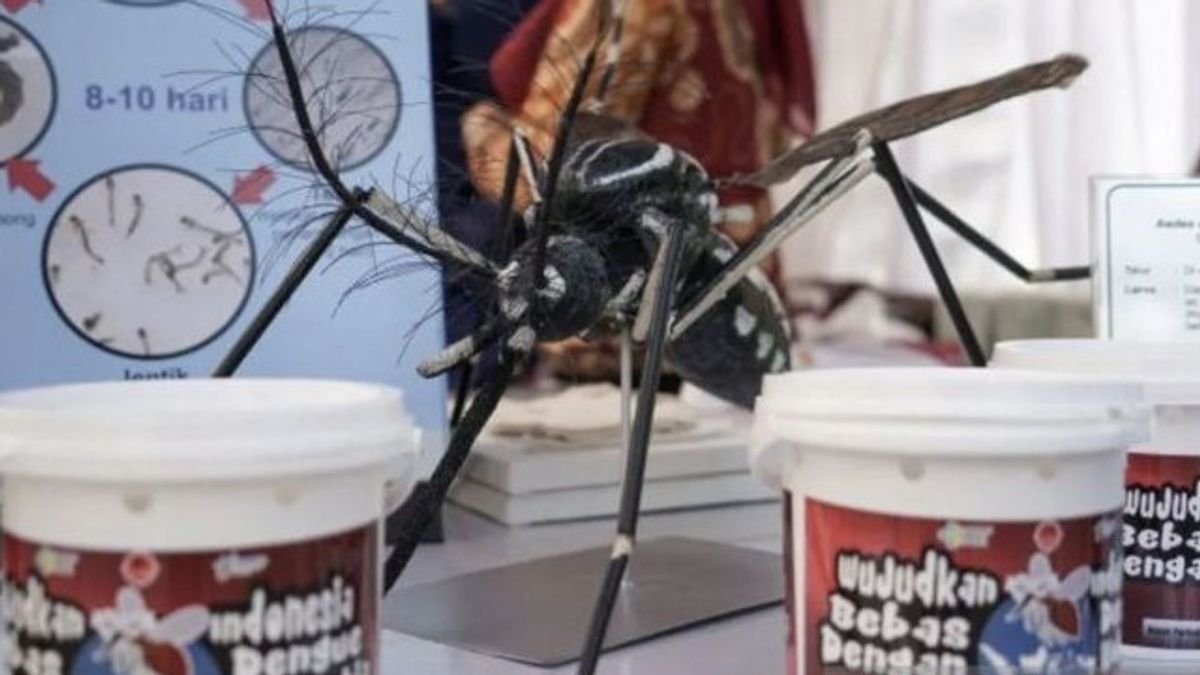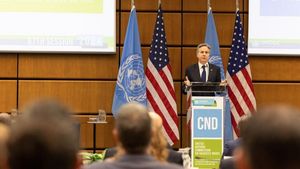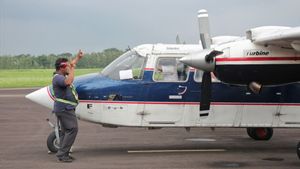JAKARTA - Head of the DKI Jakarta Health Office, Ani Ruspitawati, said that her party would spreadJobbachia mosquitoes in the near future. This is done to reduce the number of dengue hemorrhagic fever (DHF) cases.
"One of the efforts to control dengue fever other than what we have done so far is PSN (to eradicate mosquito nests) and others. Regarding mosquitoes withwobalchia, it will also be an effort to control dengue numbers," Ani told reporters, Monday, June 10.
Ani explained that the DKI Provincial Government's first target was the spread of bisabachia mosquitoes in Kembangan District, West Jakarta. Next, spread to other areas.
"Currently, we haven't started yet, we are still preparing, everything is ready, including the community is ready, then we will release mosquitoes. Who are we going to continue to do so that it can be carried out smoothly," explained Ani.
To note, dengue control is done first by inserting Wolbachia bacteria into the eggs of the Aedes aegypti mosquito. When the male aedes aegypti mosquito with wolbachia mates with a wild female mosquito without bibliography, the dengue virus in the female mosquito is blocked, so the eggs do not hatch.
In Indonesia, male and female mosquito eggs are put in a bucket that is placed in a resident's house. Then mosquitoes will reproduce and produce a population of Aedes aegypti mosquitoes in a wolbachian environment.
SEE ALSO:
The Director General of Disease Prevention and Control of the Ministry of Health, Maxi Rein Rondonuwu, has proven to be effective in reducing dengue fever cases in the city of Yogyakarta.
Since it was first distributed in 2017, he said, wolbachia mosquitoes have been shown to be able to reduce 77 percent of dengue events and 86 percent of hospital admissions.
According to the monitoring of the Ministry of Health and the health office in Semarang, Kupang, Bontang, Bandung, and West Jakarta, namely cities where wolbachia mosquitoes are distributed, the concentration of aedes aegypti mosquitoes with wolbachia in nature is in the range of 20 percent after release.
This figure, according to him, is still below the percentage of aeros aegypti wolbachia mosquitoes, which ideally reaches 60 percent in nature.
"After the population reaches 60 percent, the release of wolbachia mosquito buckets will be withdrawn and the results of the decline in dengue cases will only begin to appear after 2 years, 4 years, 10 years, and so on, as implemented in the city of Yogyakarta," said Maxi some time ago.
The English, Chinese, Japanese, Arabic, and French versions are automatically generated by the AI. So there may still be inaccuracies in translating, please always see Indonesian as our main language. (system supported by DigitalSiber.id)















